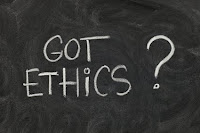Good grant writers can make a lot happen, but we’re not magicians. I’m surprised at how often I’ve been asked to step far beyond the grant writer role and work miracles within an organization. Here’s a partial list of the things I’ve been asked to do:
- Make up a program design when none exists.
- Use language to make it look like an organization has been collaborating with other organizations for a long time when, in fact, it hasn’t.
- Write letters of support for partners to sign that “say what we need them to say,” rather than what the partner really plans on doing.
- Write about how the program will be integrated with other programs in the agency when the agency hasn’t told me anything about other programs or how they plan to integrate them.
- Make up in-kind contributions.
- Put a budget together with no information about actual personnel costs or fringe benefits.
- “Fudge” needs data to exaggerate the agency’s need for the grant.
- Read through thousands of pages of back up information with the expectation that I’ll then have all I need to write a grant for the organization.
- Take one grant application and “re-purpose” it for other grants at no additional charge because “it’s basically the same thing.”
Some of these things are unethical. Some are fraudulent. Others are just unrealistic.
Yes, I am the Grant Goddess, and yes, I can make miracles happen.
But that doesn’t mean I should, or that I should be expected to in every circumstance.
Have you been asked to do anything unreasonable in your grant writing journey?


